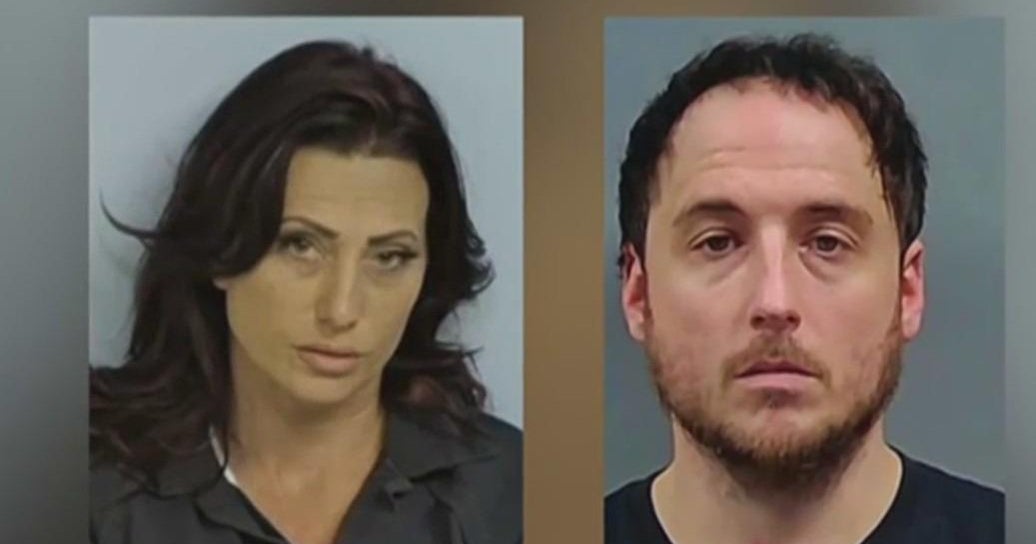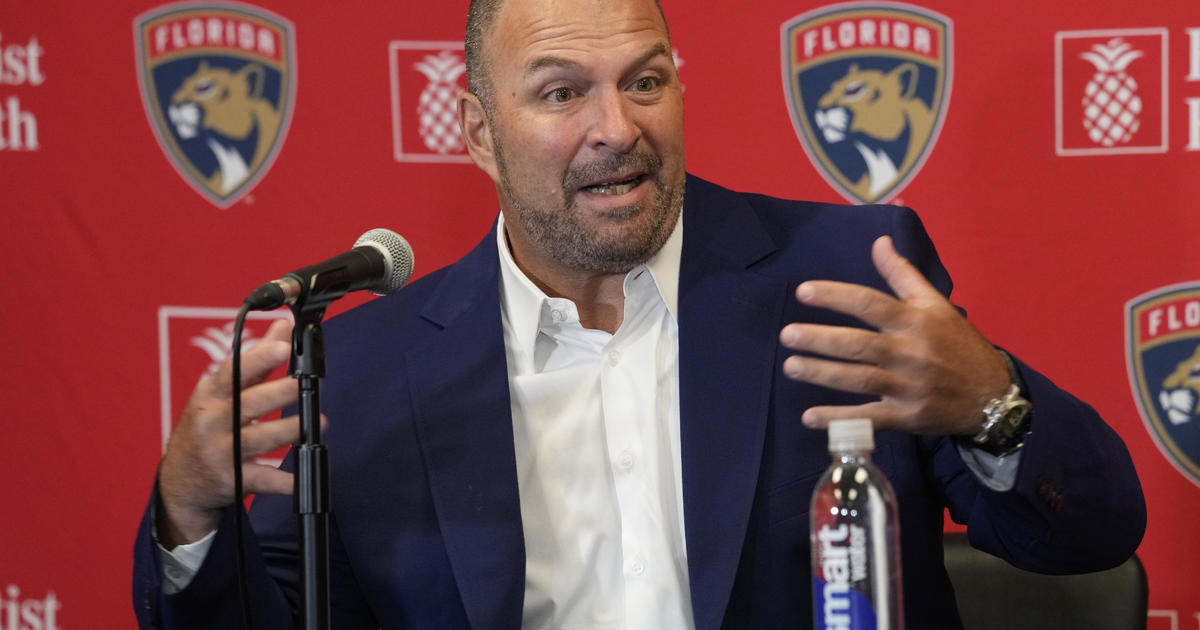Fourth Day Of Testimony In O.J. Simpson's Bid For New Trial
LAS VEGAS (CBSMiami/AP) — A lawyer who has hounded former South Florida resident O.J. Simpson for years to collect a multimillion-dollar civil judgment awarded after the former football star's "trial of the century" acquittal in Los Angeles took the stand Thursday.
Attorney David Cook, who represents Fred Goldman, testified that items taken in the Las Vegas hotel room heist that put Simpson in prison didn't really belong to him.
According to Cook, Goldman still has ownership rights to nine airless "game" football mementos that a California judge ordered returned to Simpson in 2009 — a year after Simpson was convicted of armed robbery and kidnapping in Las Vegas and sentenced to serve at least nine years behind bars.
"We have some right to the footballs if they appear on the market," Cook said.
But Simpson testified Wednesday he would never sell what he termed his "stuff." His lawyer Ozzie Fumo, on cross-examination, made Cook concede that the footballs were returned to Simpson's attorney — along with neckties, awards and an autographed photo of Simpson with former FBI Chief J. Edgar Hoover.
Cook's brief testimony came on the fourth day of a hearing to determine whether Simpson deserves a new trial on his armed robbery conviction in Las Vegas. Cook didn't testify at the 2008 trial during which Simpson now says he was so badly represented by a lawyer who had conflicted interests that he deserves a new trial.
H. Leon Simon, attorney for the state, called Cook to the stand to refute Simpson's testimony that he only wanted to retrieve personal belongings when he and five men confronted two sports collectibles dealers and a middleman in a Las Vegas hotel room in September 2007.
"It was my stuff. I followed what I thought was the law," the 65-year-old former NFL star and actor testified in his first testimony in the Las Vegas case. "My lawyer told me I couldn't break into a guy's room. I didn't break into anybody's room. I didn't try to muscle the guys. The guys had my stuff, even though they claimed they didn't steal it."
Simpson didn't testify before his 1995 acquittal in Los Angeles in the slayings of Nicole Brown Simpson and Ronald Goldman, but did testify at the civil wrongful-death lawsuit that led to Cook's involvement.
Cook has been representing Goldman's father, Fred, since 2006 in efforts to collect a share of a $33.5 million judgment awarded in February 1997 to the estate of Ron Goldman and the estate of Nicole Brown Simpson.
Outside court, Cook said the original judgment of $19 million to the Goldman estate, with accumulated interest, is now more than $45 million. He said only some of it has been recovered.
"This is an eternal odyssey," Cook said. "There is no closure here. Fred Goldman rejects closure."
Simpson, who has been held for more than four years at a prison in Lovelock, east of Reno, has been shackled at the ankles and wrists for the hearings in Las Vegas, which began Monday. He appears grayer, bulkier and somewhat weary, but has smiled at friends and family in the courtroom.
Fumo and attorney Patricia Palm called 10 witnesses the first two days, and Simpson on Wednesday.
The focus has been on the promises, payment and performance of longtime Simpson attorney Yale Galanter, who represented Simpson at trial and stayed with the case through oral arguments in a 2010 appeal that was rejected by the Nevada Supreme Court.
Galanter, of Miami, is due to testify Friday. He has declined comment ahead of that appearance.
Besides Cook, the state on Thursday called a psychiatrist, Dr. Gregory Brown, to rebut earlier testimony from a psychiatrist, Dr. Norton Roitman, who suggested that Simpson's perception of what happened in the hotel room may have been narrowed by sleeplessness, stress and the effects of several hours drinking alcohol before the confrontation.
Brown said he saw no obvious evidence that Simpson was impaired.
Palm called Malcom LaVergne, a lawyer who handled part of Simpson's earlier appeal, to discuss the relationship between the football Hall of Fame star and Galanter.
LaVergne became part of Simpson's defense after trial co-counsel Gabriel Grasso withdrew and accused Galanter of stiffing him on promised attorney fees and expenses.
On Wednesday, Simpson said he sensed that LaVergne was worried about the grip Galanter had on his case. Simpson said he later learned that while he wanted LaVergne to handle the Supreme Court oral argument, Galanter did so.
Under questioning by Palm, he addressed the main points of his writ of habeas corpus petition seeking a new trial on grounds of ineffective assistance of counsel. His points were succinct:
— His lawyer advised him he could not be convicted and urged him not to testify in his own defense. He said had he known he could be convicted, he would have testified.
— He was never told that Galanter was having preliminary discussions with prosecutors about a potential plea deal that could have limited his prison term to two to five years and perhaps resulted in probation. Prosecutors said Galanter broke off negotiations and they assumed Simpson had turned it down. If he had taken the deal, he would have been out by now.
— He met with his lawyer the night before the hotel room confrontation and informed him that he planned to reclaim his possessions from memorabilia dealers. The lawyer said he was within his rights as long as there was no trespass or violence.
"It was my stuff. I followed what I thought was the law," the 65-year-old former NFL star and actor said. "My lawyer told me I couldn't break into a guy's room. I didn't break into anybody's room. I didn't try to muscle the guys. The guys had my stuff, even though they claimed they didn't steal it."
— He had been drinking all day before the incident but his lawyer never suggested arguing that he was impaired.
— Simpson said he neither discussed nor saw any guns during the entire episode.
Simpson did acknowledge under Simon's questioning Wednesday that he didn't have a legal right to take some things from the Palace Station hotel room that didn't belong to him. Simpson said he thought those items would be returned.
There is no jury in the hearing and Simpson's fate will be determined by District Judge Linda Marie Bell. It remained unclear whether the judge plans to make an immediate ruling or issue a written order later.
While Simpson's previous court cases were media sensations, including his 1995 acquittal in the Los Angeles killings of his ex-wife and her friend, the Las Vegas hearing drew less attention until Simpson testified and the courtroom was full.
Simpson family members and friends filled one row. A marshal turned people away, sending them to an overflow room where video was streamed live.
(TM and © Copyright 2013 CBS Radio Inc. and its relevant subsidiaries. CBS RADIO and EYE Logo TM and Copyright 2013 CBS Broadcasting Inc. Used under license. All Rights Reserved. This material may not be published, broadcast, rewritten, or redistributed. The Associated Press contributed to this report.)



